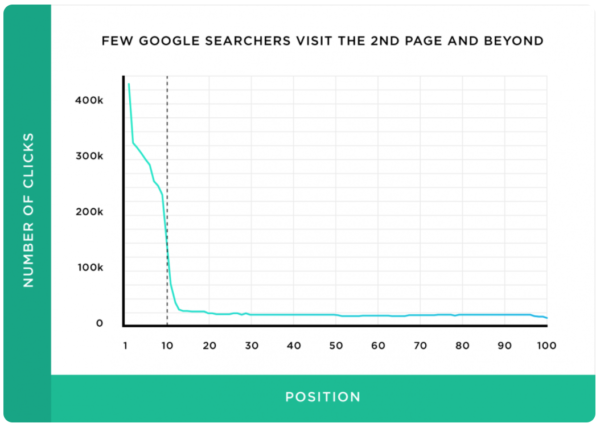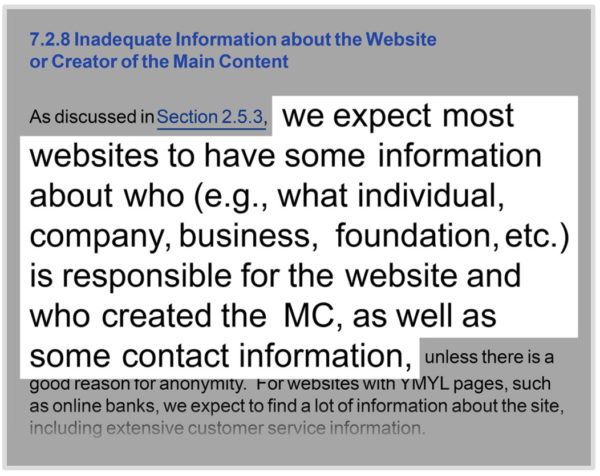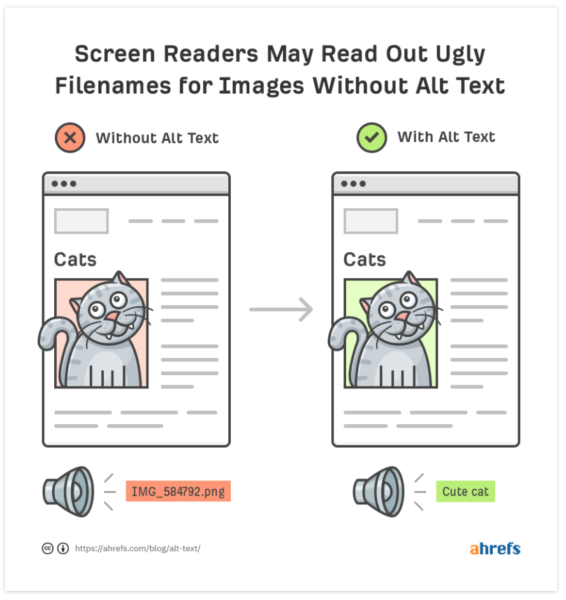
As a consultant, you understand the importance of reaching new audiences with online content. Wouldn’t it be nice if your web presence could promote itself with just the words and design that you create for it?
That’s the beauty of search engine optimization, more commonly known as SEO. You’ve probably heard the term, but did you know that SEO drives 11 times the traffic of organic social media posts? Or that 60% of marketers name SEO and similar inbound practices — meaning work that helps customers find you, instead of the other way around — as their best source of leads?
Keep reading to learn more about the importance of SEO for consultants, plus how it works and how to implement it across your entire web presence.
Get new clients and repeat business with all the tools and marketing advice you need, all in one place.
What is SEO?
SEO is the process of tweaking aspects of your website (and its content) so your site will appear prominently in the list of search results when someone uses a search engine, like Google, to search for related topics or keywords.
SEO involves two things:
- The content component: Making sure that information is reliable, high-quality, and in line with what people are looking for when they search.
- The technical component: Designing a website so that search engine algorithms can scan it effectively and know what information you’re offering to readers.
SEO efforts tend to focus on satisfying Google’s algorithm since it has the largest market share — more than 92% of web traffic worldwide comes from either Google search, Google Images, or Google Maps. Only 0.78% of Google searchers click on second-page results, so it’s important to rank as highly as possible.

What does SEO do for consultants?
SEO helps people who are looking for your services to find your site. It tells search engines that your consultancy site is authoritative and helpful to searchers.
If your SEO is successful, Google and other search engines will place your site higher in results for key terms — ideally, above your competitors. To make that happen, you have to optimize two things: your content and your tech.
Optimizing your content
Content is an important marketing tool for consultants. It gets your expertise out there and attracts the notice of potential clients with valuable information and advice.
Before that can happen, searchers have to know that your content exists. Here’s how to help surface your content to the readers who want to see it.
Match keywords to user intent
Once upon a time, you had to match the exact wording that people used to search. Now, it’s all about user intent.
Targeting user intent means knowing not just what topic a user is searching for, but why they’re searching for it. That’s why SEO experts have come up with four basic intent categories to help marketers target their content.
- Informational intent: The searcher is learning more about a topic.
- Investigational intent: The searcher is going deeper into a topic, often to make a decision. Keywords including “best” and “comparison” are common here.
- Transactional intent: The searcher is ready or almost ready to buy.
- Navigational intent: The searcher is looking for a particular site or even a product page.
Once you know which intent you’re targeting, you can start doing keyword research. Brainstorm some potential queries within your target category, then check for related searches. This can be as simple as reviewing related searches at the bottom of the Google search page, or you can use Constant Contact’s SEO tools to get a more complete list of options.
You can’t possibly rank for every single keyword, so find a keyword research tool you like and look up the search volume for your various options.
The higher the search volume, the more traffic you’re likely to get, but be modest in your aspirations. Some of the highest-volume keywords are hard to rank for, simply because of competition.
Demonstrate your authority
Google prioritizes sites that demonstrate “expertise, authoritativeness, and trustworthiness.” You know your stuff, but you have to make sure Google knows it too. That means getting other sites to link back to you and including explicit information about yourself and your credentials, not just on your website but also on any blogs or articles you publish.

Understanding who authored the content on your site helps search engines gauge how reliable the content is. Including author profiles for blogs or information about the site owner on an About page are good ways to showcase this information.
Backlinks are another way to establish authority. A backlink is simply a link back to your content from some other place on the web. If other sites link to and reference your content, this is an indication to search engines that people find your content reliable, informative, and authoritative.
Make sure you:
- Have a detailed About page and Contact page on your consulting website
- Include references to any sources you cite in your content
- Encourage clients and colleagues to reference and link to your website and blog
Use headings for readability
Headings — the text in your content that’s larger and often bolder than the main content — help crawlers and readers understand the structure of your content and its main points.
You may have heard that you need keywords in your headings to rank highly. John Mueller of Google says that’s not necessarily the case.
Headings are mostly important for showing the logical organization of a page. For example, the H3 heading above, “Use headings for readability,” indicates that this is a subsection of the “Optimizing your content” section.
You may choose to use keywords in your headings to emphasize the topic of a particular section. Contrary to popular opinion, omitting keywords from your subheadings won’t hurt your SEO, so only use them if they fit in naturally.
Optimizing your tech
Optimizing your content is important, but you also have to make sure that search engines can find it and understand what it is. Don’t worry — you don’t need a degree in programming or in-depth coding experience to make this happen.
Pick clear URLs
Your URL, the web address that sends people to your site, is the first thing that Google will see. It should be clearly related to the content on the page and the search intent of people who are looking for it.
Your URLs also need to provide clear pathways so search engines can crawl the full structure of your site. Organize the pages on your site into a logical folder structure that search engines can understand. For example, https://consultingbiz.com/services/marketing takes you from the Homepage to a Services page, to a marketing-specific page. This helps the search engine understand this particular page is about a marketing service.
Use logically descriptive words and include keywords in your URLs where relevant. If you’re targeting a search term with multiple words, use hyphens to separate them in your URLs, as in “marketing-tips-for-consultants.”
Avoid repeating words, even keywords, in your URLs. A URL with too many keywords crammed in looks spammy to both people and search engines.
Use alt text on images
Alt text, or alternative text, captions your images online. Its primary purpose is to describe your images for visually impaired users and others who depend on screen reading software, but it also helps search engines understand the content of visual assets.

Alt text also helps you rank on Google Images, which hosts one out of every five searches (just over 20%). Google can’t “read” pictures, so you need alt text to tell its crawlers what your images depict.
What’s next for your SEO?
Now that you know how important SEO is for marketing your consulting business, as well as how to optimize your site from content and technical standpoints, you can start making tweaks to your online presence. As you’ve seen, it doesn’t require a complete overhaul — just a few small changes so that search engines can find your content and surface it to the right audience.
Start by looking through The Download, our comprehensive digital marketing resource for providers of professional services. Whether you use it to revamp your About page, design a blog, or something else, you’ll be well on your way to driving more traffic to your site.




